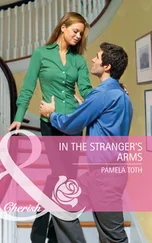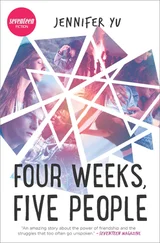I have to strain to hear, and strain, too, to understand. I have questions, but I don’t want to interrupt her. For the few hours we are together here, we could be old college roommates who have lost touch, and she is telling me about the few years since graduation.
Brenda is my age, twenty-four. She is a slight, light-complexioned black woman. She went to Dartmouth and majored in English literature, but she never finished. She stumbled into the tunnels four years ago with a man who was supplying her with drugs, and now she doesn’t want to leave, because the tunnels comfort her.
What else comforts you? I ask.
“I’ll tell you what doesn’t comfort me,” she says. She pulls her knees to her chest for warmth and then gives a rueful smile, exposing a missing tooth, which one of her boyfriends recently knocked out. “Touch doesn’t comfort me. Men’s touches don’t comfort me anymore; they repulse me. When a man gets on top of me, I go completely numb, like I’m water miles away from shore.
“Talk doesn’t comfort me, either. The tunnels comfort me, I guess, because they’te mine. They know what’s inside me and they feel the way I do. Always. Like, you know, when you bomb a test but it’s sunny outside? Well, that doesn’t happen in the tunnels,” she laughs. “They’re always dark inside, like me, but inside, I’m like the tunnel—dark, winding, and twisting.”
Tonight Brenda has come back aboveground to the world she left almost four years ago. For several hours she is lucid and talkative, completely different from the evasive, almost shrunken young woman who, while not hostile, moved away whenever I approached her in the tunnels.
I FIRST SAW HER IN A TUNNEL ON THE UPPER WEST SIDE OF MANhattan. She was sitting on a small stool, wearing black stretch pants, as she scraped carrots and cut them into a large blackened iron pot on the grate over a campfire. An opened bag of potatoes waited their turn to go in with the pasta and tomato sauce and melting cheese. The odor, carried with the smoke from the fire toward the entrance of the tunnel, was sharp but pleasant, more appetizing than the sight. She smiled but when I neared, she looked down at her work. She said, please to excuse her, because she had to get lunch ready.
As she spoke, a large black man came to her side and scowled at me, hands on hips.
“She’s a reporter doing a book,” Brenda told him. “She wants to ask me some questions.”
He looked me up and down scowling.
“She paying you?” he demanded, as if I weren’t there, though he looked straight at me. Had she not been there, I would have felt in danger.
I waited for Brenda’s reply. Instead, she looked nervously up at me from bowed head.
“No,” I answered for her.
“Then you ain’t gonna talk,” he said flatly, still watching me.
She shrugged and bent back for another potato.
I began to speak to him, but he waved away my words. “Ain’t gonna talk without money,” he said. Brenda busied herself even more, as if increasingly uneasy at what could become a confrontation. So I said good-bye and turned to leave.
“Bring some money and I’ll tell you stories you won’t believe,” he called to my back.
When I looked back, Brenda seemed embarrassed. “Hey,” she said, “bring me some cigarettes next time.”
“You get out of here now!” her man yelled at me. “And you shut up, bitch!” he shouted at Brenda.
She did, and I left quickly.
I bought cigarettes the next time I was near her tunnel, and was talking to a group of homeless in the Rotunda at West 79th Street in Riverside Park when she appeared. Most of the people greeted her, and one woman gave her a hug.
“Hey,” she asked me loudly, “did you get my cigarettes?”
I tossed the pack to her over the heads of the group.
She seemed surprised as she caught it. “Thanks,” she said as people rushed to share her gift. She gave all of the cigarettes away except for one, which she lit. Then she walked off.
TONIGHT IN CENTRAL PARK OCCURS BY ACCIDENT. WE HAPPEN INTO each other outside a movie theater, and on the spur of the moment decide to go inside to see the feature, The Fisher King . Brenda wants to see Robin Williams. I am interested in seeing a popular film that deals with homeless people.
Brenda immediately feels threatened, unused to a crowd in close quarters.
“Don’t let anyone touch me,” she almost pleads, her voice tight. “I can’t stand it in here if anyone touches me.” Brenda is generous with her hugs in the tunnels, but here her eyes dart and her body jumps at any movement close by. Half of the movie passes before I feel her relax. She even laughs at one point.
Afterwards, she invites me to go to the park and lie nude like Robin Williams and Jeff Bridges in the movie. Even if she could get me into the park at night, I say, I’m not much for lying in the buff, particularly in cold weather. She invites me to what she calls her “secret place” anyway. I often have nightmares of being in the tunnels at night, of glaring eyes and desperate faces, but I go with Brenda.
She leads me into a tunnel. It has a surreal calmness to it as we walk. White moonlight falling through grates lends a pale and glowing purity to the tunnel. Water drips from pipes soothingly. We could be walking through a nature trail. We seem to have gone miles.
Brenda has been silent for so long that I wonder if she has forgotten me. My old fears return as I worry about getting lost if she suddenly disappears. We emerge finally, next to Central Park, and we compromise: I will go into the park if she promises to get me out safely. And the clothes stay on. She laughs, but I am still very anxious. I covered the Central Park jogger trial several months earlier, and the graphic testimony of the gang rape and brutalization of the young woman victim are fresh in my mind.
“Look,” Brenda says abruptly, “you don’t have to do this.”
I say I’ll go on.
“Well then, get a grip, girl! Man!” she orders in an unexpectedly strong voice. I do, or at least I pretend to, and if you pretend long enough, it becomes real. That is one of the first lessons Brenda teaches me.
We eventually settle on grass off the path. “No pictures,” she insists, meaning no details of her relatives or past that would identify her to her family.
“I stay with men so they can supply me, not because they protect me,” she volunteers. “I don’t care what happens to me. The worst has happened. It can happen again and I won’t care.”
You’ve given up trying to be happy?
“No,” she replies, “just given up fighting. It’s not so bad being unhappy. It even becomes comforting. It’s like that’s the real me. I’m not afraid of anything, not even of fear. I’m not afraid to be afraid.”
I’m about to suggest that she sounds like she wants to convince herself of that.
“Now, you, you’re afraid,” she says. “That’s why some of the people laugh at you. They can see in your eyes that you’re afraid to be like us, not because you might be cold or hurt but because you’re afraid how you’d feel.”
Well, people do talk to me anyway, I say defensively.
“Yeah, they know you’re trying to be brave and they appreciate that,” she says in a softer tone. “They also feel sorry for you.”
I laugh, but I’m still stung. “Well, being afraid to feel something is better than feeling nothing at all,” I insist.
“No matter what anyone says, you can’t stop having feelings,” she goes on. “Sometimes I’ll sit there reading,” she points toward a park bench on which two men lie bundled in sleep, “like the other day, I was reading a copy of the Post about Liz Taylor’s wedding and suddenly my face was wet. I think I was crying, I don’t know.” She pauses and looks away, then asks, almost plaintively, “Why can’t they just leave her alone?”
Читать дальше












